

Our Courses

Data for Machine Learning
This course is all about data and how it is critical to the success of your applied machine learning model.
-
Course by

-
 Self Paced
Self Paced
-
 12 hours
12 hours
-
 English
English
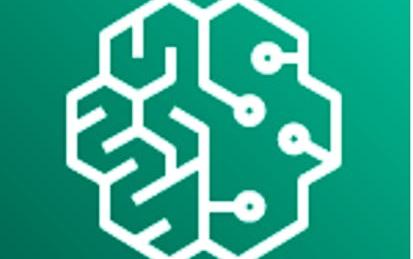
Semantic Segmentation with Amazon Sagemaker
Please note: You will need an AWS account to complete this course. Your AWS account will be charged as per your usage. Please make sure that you are able to access Sagemaker within your AWS account. If your AWS account is new, you may need to ask AWS support for access to certain resources. You should be familiar with python programming, and AWS before starting this hands on project.
-
Course by

-
 Self Paced
Self Paced
-
 3 hours
3 hours
-
 English
English

Machine Learning: an overview
The course provides a general overview of the main methods in the machine learning field. Starting from a taxonomy of the different problems that can be solved through machine learning techniques, the course briefly presents some algorithmic solutions, highlighting when they can be successful, but also their limitations. These concepts will be explained through examples and case studies.
-
Course by

-
 Self Paced
Self Paced
-
 3 hours
3 hours
-
 English
English
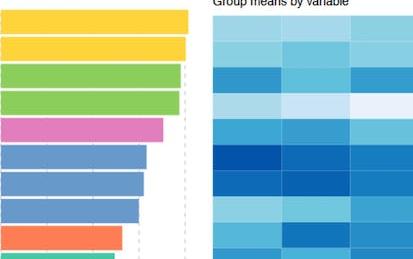
Explainable Machine Learning with LIME and H2O in R
Welcome to this hands-on, guided introduction to Explainable Machine Learning with LIME and H2O in R.
-
Course by

-
 Self Paced
Self Paced
-
 2 hours
2 hours
-
 English
English

Introduction to Generative AI
This is an introductory level microlearning course aimed at explaining what Generative AI is, how it is used, and how it differs from traditional machine learning methods. It also covers Google Tools to help you develop your own Gen AI apps.
-
Course by

-
 Self Paced
Self Paced
-
 1 hour
1 hour
-
 English
English

Preparing for DP-900: Microsoft Azure Data Fundamentals Exam
Microsoft certifications give you a professional advantage by providing globally recognized and industry-endorsed evidence of mastering skills in digital and cloud businesses. In this course, you will prepare to take the DP-900 Microsoft Azure Data Fundamentals certification exam. You will refresh your knowledge of the fundamentals of database concepts in a cloud environment, the basic skilling in cloud data services, and foundational knowledge of cloud data services within Microsoft Azure.
-
Course by

-
 Self Paced
Self Paced
-
 6 hours
6 hours
-
 English
English

Supervised Machine Learning: Classification
This course introduces you to one of the main types of modeling families of supervised Machine Learning: Classification. You will learn how to train predictive models to classify categorical outcomes and how to use error metrics to compare across different models.
-
Course by

-
 Self Paced
Self Paced
-
 25 hours
25 hours
-
 English
English

AI Workflow: Business Priorities and Data Ingestion
This is the first course of a six part specialization. You are STRONGLY encouraged to complete these courses in order as they are not individual independent courses, but part of a workflow where each course builds on the previous ones. This first course in the IBM AI Enterprise Workflow Certification specialization introduces you to the scope of the specialization and prerequisites. Specifically, the courses in this specialization are meant for practicing data scientists who are knowledgeable about probability, statistics, linear algebra, and Python tooling for data science and ma
-
Course by

-
 Self Paced
Self Paced
-
 8 hours
8 hours
-
 English
English

Web Applications and Command-Line Tools for Data Engineering
In this fourth course of the Python, Bash and SQL Essentials for Data Engineering Specialization, you will build upon the data engineering concepts introduced in the first three courses to apply Python, Bash and SQL techniques in tackling real-world problems. First, we will dive deeper into leveraging Jupyter notebooks to create and deploy models for machine learning tasks. Then, we will explore how to use Python microservices to break up your data warehouse into small, portable solutions that can scale.
-
Course by

-
 Self Paced
Self Paced
-
 15 hours
15 hours
-
 English
English

AI Materials
Learn about the materials that have advanced the performance of artificial intelligence, and the machine learning models that could help accelerate the design and development of novel materials. This course defines artificial intelligence (AI) as a machine to which some or all of the functions of the human brain have been delegated. It highlights the need, and explains in an easy-to-understand way how machine learning from artificial intelligence can dramatically accelerate the development of new materials.
-
Course by

-
 Self Paced
Self Paced
-
 50 hours
50 hours
-
 English
English

Artificial Intelligence Algorithms Models and Limitations
We live in an age increasingly dominated by algorithms. As machine learning models begin making important decisions based on massive datasets, we need to be aware of their limitations in the real world. Whether it's making loan decisions or re-routing traffic, machine learning models need to accurately reflect our shared values. In this course, we will explore the rise of algorithms, from the most basic to the fully-autonomous, and discuss how to make them more ethically sound.
-
Course by

-
 Self Paced
Self Paced
-
 8 hours
8 hours
-
 English
English

Attention Mechanism
This course will introduce you to the attention mechanism, a powerful technique that allows neural networks to focus on specific parts of an input sequence. You will learn how attention works, and how it can be used to improve the performance of a variety of machine learning tasks, including machine translation, text summarization, and question answering.
-
Course by

-
 Self Paced
Self Paced
-
 1 hour
1 hour
-
 English
English

Microsoft Azure Machine Learning for Data Scientists
Machine learning is at the core of artificial intelligence, and many modern applications and services depend on predictive machine learning models. Training a machine learning model is an iterative process that requires time and compute resources. Automated machine learning can help make it easier.
-
Course by

-
 Self Paced
Self Paced
-
 11 hours
11 hours
-
 English
English
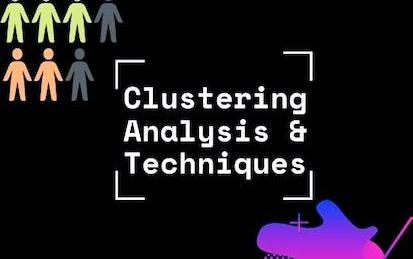
Clustering analysis and techniques
In this 2-hour long project-based course, you will learn how to perform clustering (one of the core pillar of unsupervised learning) and its importance in machine learning, set up PyCaret Clustering module, create, visualize & compare Clustering algorithms all this with just a few lines of code.
-
Course by

-
 Self Paced
Self Paced
-
 3 hours
3 hours
-
 English
English

Deploy Machine Learning Model into AWS Cloud Servers
By the end of this project, you will learn how to build a spam detector using machine learning & launch it as a serverless API using AWS Elastic Beanstalk technology.
-
Course by

-
 Self Paced
Self Paced
-
 3 hours
3 hours
-
 English
English

Introduction to Medical Software
In this class, we present a broad overview of the field of medical software. You will learn from Yale professors and a series of industry experts who connect the course concepts to their real world applications. We begin by discussing medical device regulatory structures, data privacy and cybersecurity regulations, and key support technologies such quality management systems and risk management.
-
Course by

-
 Self Paced
Self Paced
-
 38 hours
38 hours
-
 English
English

Advanced Learning Algorithms
In the second course of the Machine Learning Specialization, you will: • Build and train a neural network with TensorFlow to perform multi-class classification • Apply best practices for machine learning development so that your models generalize to data and tasks in the real world • Build and use decision trees and tree ensemble methods, including random forests and boosted trees The Machine Learning Specialization is a foundational online program created in collaboration between DeepLearning.AI and Stanford Online.
-
Course by

-
 Self Paced
Self Paced
-
 English
English
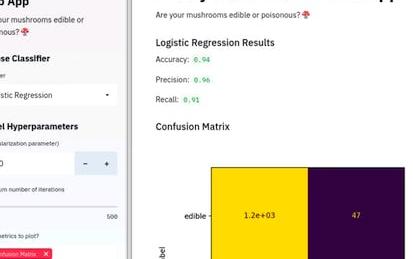
Build a Machine Learning Web App with Streamlit and Python
Welcome to this hands-on project on building your first machine learning web app with the Streamlit library in Python. By the end of this project, you are going to be comfortable with using Python and Streamlit to build beautiful and interactive ML web apps with zero web development experience! We are going to load, explore, visualize and interact with data, and generate dashboards in less than 100 lines of Python code!
-
Course by

-
 Self Paced
Self Paced
-
 3 hours
3 hours
-
 English
English

Machine Learning Modeling Pipelines in Production
**Starting May 8, enrollment for the Machine Learning Engineering for Production Specialization will be closed.
-
Course by

-
 Self Paced
Self Paced
-
 48 hours
48 hours
-
 English
English

Fundamentals of Machine Learning in Finance
The course aims at helping students to be able to solve practical ML-amenable problems that they may encounter in real life that include: (1) understanding where the problem one faces lands on a general landscape of available ML methods, (2) understanding which particular ML approach(es) would be most appropriate for resolving the problem, and (3) ability to successfully implement a solution, and assess its performance.
-
Course by

-
 Self Paced
Self Paced
-
 18 hours
18 hours
-
 English
English

Business Intelligence and Visual Analytics
Building on “Data Warehousing and Business Intelligence,” this course focuses on data visualization and visual analytics. Starting with a thorough coverage of what data visualization is and what type of visualization is good for a given purpose, the course quickly dives into development of practical skills and knowledge about visual analytics by way of using one of the most popular visual analytics tools: SAS Viya, a cloud-based analytics platform. An overview of cloud architecture, automation, and machine learning is also provided.
-
Course by

-
 Self Paced
Self Paced
-
 12 hours
12 hours
-
 English
English

Perform data science with Azure Databricks
In this course, you will learn how to harness the power of Apache Spark and powerful clusters running on the Azure Databricks platform to run data science workloads in the cloud. This is the fourth course in a five-course program that prepares you to take the DP-100: Designing and Implementing a Data Science Solution on Azurec ertification exam. The certification exam is an opportunity to prove knowledge and expertise operate machine learning solutions at a cloud-scale using Azure Machine Learning.
-
Course by

-
 Self Paced
Self Paced
-
 26 hours
26 hours
-
 English
English
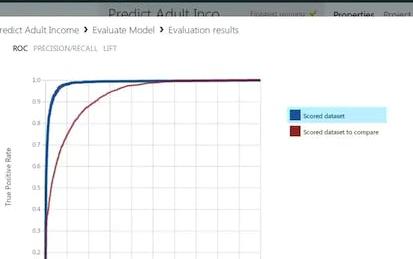
Machine Learning Pipelines with Azure ML Studio
In this project-based course, you are going to build an end-to-end machine learning pipeline in Azure ML Studio, all without writing a single line of code! This course uses the Adult Income Census data set to train a model to predict an individual's income. It predicts whether an individual's annual income is greater than or less than $50,000. The estimator used in this project is a Two-Class Boosted Decision Tree classifier. Some of the features used to train the model are age, education, occupation, etc.
-
Course by

-
 Self Paced
Self Paced
-
 3 hours
3 hours
-
 English
English

Machine Learning for Data Analysis
Are you interested in predicting future outcomes using your data? This course helps you do just that! Machine learning is the process of developing, testing, and applying predictive algorithms to achieve this goal. Make sure to familiarize yourself with course 3 of this specialization before diving into these machine learning concepts.
-
Course by

-
 Self Paced
Self Paced
-
 11 hours
11 hours
-
 English
English
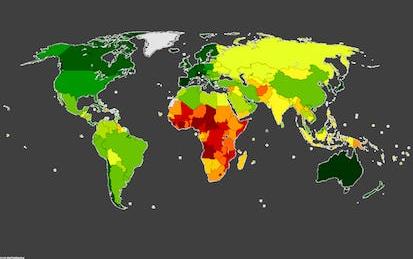
Life Expectancy Prediction Using Machine Learning
In this hands-on project, we will train a Linear Regression model to predict life expectancy.
-
Course by

-
 Self Paced
Self Paced
-
 3 hours
3 hours
-
 English
English



